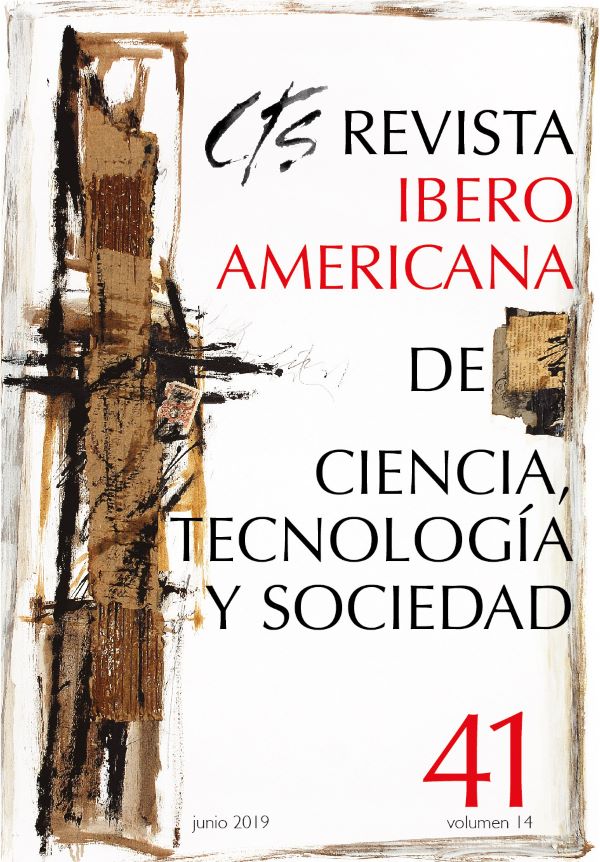Engineering, Digital Societies and Infosphere. An Interpretation of Luciano Floridi's Philosophy and Ethics of Information
Keywords:
philosophy of information, information ethics, engineering, infosphere, societyAbstract
The effect of “informatization” on all facets of our life is redefining the understanding of reality, human beings and their relations and (inter)actions. This paradigm shift requires new epistemic and ontological approaches, but also ethical and anthropological ones. Luciano Floridi’s information ethics and philosophy try to explain the effects of this turn towards information, in which engineering fields play a fundamental role. The “infosphere” is an ecosystem of information-based actions and relationships that blurrs differences between what is human and what is artificial. The capability for action of and interaction between machines and humans requires a reflection in which the understanding of information technologies is essential. Thus, the philosophy of information —as a philosophy of, for and in the modern world— must maintain a direct dialogue with the engineering fields.Downloads
References
CLARK, A. y CHALMERS, D. J. (2010). The Extended Mind, en R. Menary (ed.): The Extended Mind, Cambridge, MIT Press, pp. 27-42.
DE BROUDEWIJN, B. y FLORIDI, L. (2017): “The Ethics of Cloud Computing”, Science and Engineering Ethics, vol. 23, pp. 21-29. DOI: 10.1007/s11948-016-9759-0.
ECHEVERRÍA, J. (2014): Innovation and Values: A European Perspective, Reno’s Center for Basque Studies, University of Nevada.
FLORIDI, L. (2007). “A Look into the Future Impact of ITC on Our Live”, The Information Society, vol. 23, n° 1, pp. 59-64. DOI: 10.1080/01972240601059094.
FLORIDI, L. (2009a): “Against Digital Ontology”, Synthese, vol. 168, pp. 151-178. DOI: 10.1007/s1129-008-9334-6.
FLORIDI, L. (2009b): “Network Ethics: Information and Business Ethics in a Networked Society”, Journal of Business Ethics, vol. 90, pp. 649-659. DOI: 10.1007/s10551-010-0598-7.
FLORIDI, L. (2010a): “Ethics After the Information Revolution”, The Cambridge Handbook of Information and Computer Ethics, Nueva York, Cambridge University Press, pp. 3-19.
FLORIDI, L. (2010c): Information. A Very Short Introduction, Nueva York, Oxford University Press.
FLORIDI, L. (2010d): “Information Ethics”, The Cambridge Handbook of Information and Computer Ethics, Nueva York, Cambridge University Press, pp. 77-100.
FLORIDI, L. (2011a): “The Informational Nature of Personal Identity”, Mind & Machines, vol. 21, pp. 549-566.
FLORIDI, L. (2011b): The Philosophy of Information, Nueva York, Oxford University Press.
FLORIDI, L. (2012): “Turing’s Three Philosophical Lessons and the Philosophy of Information”, Philosophical Transactions of Royal Society A, vol. 370, pp. 3536-3542. DOI: 10.1098/rsta.2011.0325.
FLORIDI, L. (2013a): “Distributed Morality in an Information Society”, Science and Engineering Ethics, vol. 19, pp. 727-743. DOI: 10.1007/s11948-012-9413-4.
FLORIDI, L. (2013b): The Ethics of Information, Oxford University Press.
FLORIDI, L. (2014): The Fourth Revolution. How the Infosphere is Reshaping Human Reality, Oxford University Press.
FLORIDI, L. (2015): The onlife Manifesto. Being Human in a Hyperconnected Era, Springer Open. DOI: 10.1007/978-3-319-04093-6.
FLORIDI, L. y TADDEO, M. (2016): “What is Data Ethics?”, Philosophical Transactions of Royal Society A, vol. 374. DOI: 10.1098/rsta.2016.0360.
KUHN, T. (2004): La estructura de las revoluciones científicas, Buenos Aires, FCE.
LAUDAN, L. (1981): “A Confutation of Convergent Realism”, Philosophy of Science, vol. 48, n° 1, pp. 19-49.
LYOTARD, J. F. (1987). La condición postmoderna, Madrid, Cátedra.
SHANNON, C. E. y WEAVER, W. (1971): The Mathematical Theory of Communication, Champaign, University of Illinois Press.
TADDEO, M. y FLORIDI, L. (2016): “The Debate on the Moral Responsibilities on Online Service Providers”, Science and Engineering Ethics, vol. 22, pp. 1575-1603. DOI: 10.1007/s11948-015-9734-1.
WORRALL, J. (1989): “Structural Realism: The Best of Both Worlds?”, Dialectica, vol. 43, n° 1-2, pp. 99-124. DOI: 10.1111/j.1746-8361.1989.tb00933.x
Downloads
Published
How to Cite
Issue
Section
License
All CTS's issues and academic articles are under a CC-BY license.
Since 2007, CTS has provided open and free access to all its contents, including the complete archive of its quarterly edition and the different products presented in its electronic platform. This decision is based on the belief that offering free access to published materials helps to build a greater and better exchange of knowledge.
In turn, for the quarterly edition, CTS allows institutional and thematic repositories, as well as personal web pages, to self-archive articles in their post-print or editorial version, immediately after the publication of the final version of each issue and under the condition that a link to the original source will be incorporated into the self-archive.











